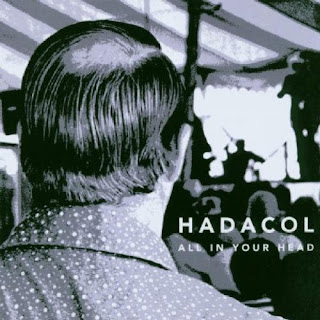V2.19
The best-selling country music album of 2001 wasn’t by Faith Hill, the Dixie Chicks or even old-faithful himself, Garth Brooks. No, the multi-platinum soundtrack to the film O Brother, Where Art Thou? grabbed that brass ring, the collection of traditional country, hillbilly and gospel music chalking up over three million in sales with little or no radio airplay. Apologists for the pop-flavored pabulum that Nashville has been cranking out these past few years are crying “foul” up and down Music Row, dismissing the aforementioned soundtrack as a mere fluke…but alt-country fans know better. A movement in search of commercial recognition found a hit in O Brother, Where Art Thou?, the CD providing short-lived justification for the entire alternative country genre and it’s artistic call for a return to some sort of traditionalism in country music.
Lack of talent isn’t the reason why alt-country hasn’t broken big with mainstream audiences. The tendency for the genre to include everything outside of Nashville’s major label system might be its biggest problem, alt-country artists running the stylistic gamut from bluegrass and Western swing to country-rock and mountain-grown hillbilly rave-ups. It’s a mighty big tent that can include rough-hewn rockers like Slobberbone alongside Nashville traditionalists like BR5-49 or folkish singer-songwriters like Lucinda Williams. Two recent albums by so-called “alternative country” artists highlight the identity problems suffered by the genre, with roots-rockers Hadacol and former Whiskeytown frontman Ryan Adams offering widely different interpretations of the country tradition.
Hadacol – named after the tonic that once sponsored Hank Williams’ radio show – delivers a brilliant second album with All In Your Head (Slewfoot Records), offering up rollicking tunes with stylistic roots similar to other great American Midwestern bands like Uncle Tupelo, the Bottle Rockets and the Skeletons. Brothers Fred and Greg Wickham run the show here, swapping off songwriting duties on a roughly 50/50 basis, both contributing vocals and guitars to the band’s distinctive country-rock sound. The Wickham’s are individually quite talented songwriters, Hadacol’s lively tunes poetically exploring familiar themes of love and betrayal, family and friendship, life and its many ups and downs. Deft production from the musically sympathetic Lou Whitney of the Skeletons breathes a great deal of life and energy into tunes like the eerie “Watch It Burn,” the self-doubting “What I’m Doin’ Wrong” or the light-hearted “Airplane Song.” Sort of like the kudzu vine that frames the highways of the South, All In Your Head will grow on you more and more with every listen.
Ryan Adams, formerly of alt-country pioneers Whiskeytown, delivered one of the most critically acclaimed albums of 2001 in Gold (Lost Highway). The Reverend is here to tell you that Adams lives up to his press clippings. Gold was released by Lost Highway, the fledgling alt-country label that shocked Nashville with the O Brother, Where Art Thou? soundtrack and which has also released discs from Lucinda Williams and Billy Bob Thornton. Unlike the unabashed roots-rock style of Hadacol, or even his own earlier solo work, Adams’ sophomore effort blends equal measures of country, rock, pop and Southern-fried soul into a sort of musical hobo’s stew. The album opens with a love song for the artist’s newly adopted hometown, “New York, New York” a guitar-driven romp through Adams’ lyrical infatuation with the Big Apple’s charms. From that point, Adams uses his natural charisma and songwriting skills to drive home another fifteen wonderful tunes. From the country-flavored “Somehow, Someday” to the soulful “Rescue Blues” or the introspective “Goodnight, Hollywood Blvd,” Adams’ infectious voice and intelligent lyricism are guaranteed to fire the listener’s imagination.
Although not an alt-country artist, many of those who choose to wear that label like a badge of defiance could learn a lot by listening to R.L. Burnside. One of the few remaining old-school bluesmen, Burnside’s music is a unique hybrid of Delta and Mississippi Hill Country blues. Enduring the scorn of uptight blues purists for the sin of tainting his sound through collaborations with “outsiders” like guitarist Jon Spencer or electronica producer Alex Rothrock, Burnside has nevertheless enjoyed a fair share of mainstream popularity during the past decade. Burnside’s increased audience has been built not through marketing hype but by the artist’s uncompromising and dynamic live performances.
Burnside On Burnside (Fat Possum/Epitaph), recorded live at the Crystal Ballroom on, well, Burnside Street in Portland, Oregon, showcases a return to an earthier sound for Burnside. With a backing band that includes his twenty-two-year-old grandson Cedric and his longtime sidekick, guitarist Kenny Brown, the 74-year old musician delivers a red-hot set of classic raw blues. Burnside’s bent-note style of guitar playing, inspired by mentor Mississippi Fred McDowell, when matched with Brown’s looping slidework and the younger Burnside’s steady rhythms, creates an almost hypnotic tapestry upon which the bluesman embroiders his powerful vocals.
At home while on any stage, Burnside tells jokes, wanders across various musical pathways and generally plays what he wants to play. This is no slick Chicago-styled blues or the work of some studio-bred Texas guitarslinger – this is primal, no-frills, rockin-the-Casbah, honest-to-god jukejoint BLOOZE, delivered straight up, with no chaser. A gem among blues albums, Burnside On Burnside captures the music’s threatening ambiance and fiery essence like no other live album these ears have ever heard. (The View On Pop Culture, Janaury 2002)



No comments:
Post a Comment